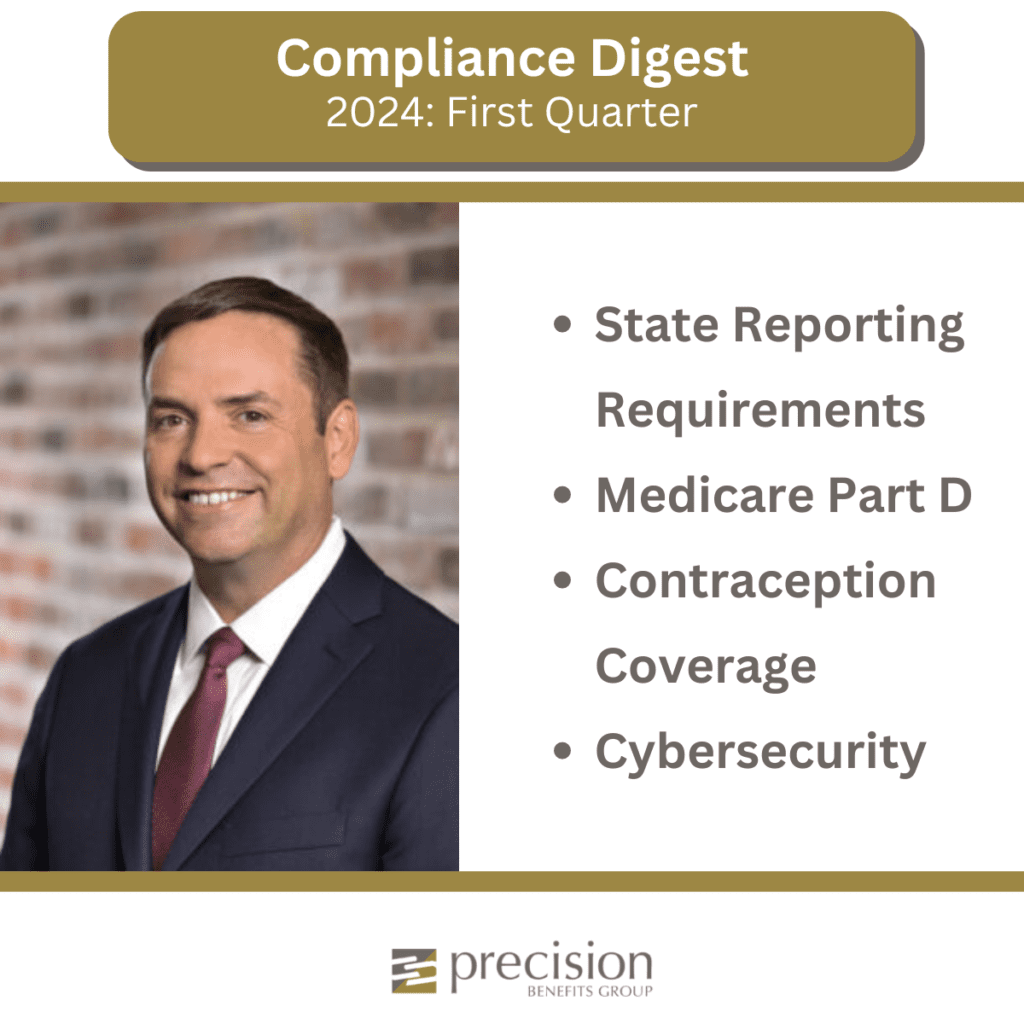
State Health Coverage Reporting Requirements
Some states have new reporting requirements on top of federal regulations for health insurance coverage in 2023, including California, Massachusetts, New Jersey, Rhode Island, and the District of Columbia. Employers in these states need to follow both federal and state deadlines for furnishing information to employees and filing it with state agencies to meet insurance compliance regulations.
- Residing employees: Employers with staff in states with health coverage mandates need to follow reporting rules in addition to federal ones.
- Forms vary by state: Most states use federal forms (1094/1095), with some exceptions.
- Fully insured plans: Insurance carriers typically handle reporting for in-state residents, but may not do so for out-of-state residents.
- Self-funded plans: Administrators should handle reporting for residents in mandate states and inquire about additional fees.
- No automatic reporting for out-of-state plans: Take extra steps if your carrier won’t handle reporting for employees in mandate states.
Florida State Programs to Import Drug
The FDA approved Florida’s plan to import drugs from Canada, a first for any state, which aims to reduce costs for programs like Medicaid. However, only specific programs can participate, and Florida must follow strict safety and labeling rules. Initially authorized for two years with ongoing reporting, the program may face legal challenges from PhRMA. It begins by offering drugs for chronic conditions, expanding to cover Medicaid statewide. Other states, like Colorado, Vermont, and New Mexico, are pursuing similar programs, but importation is limited to Canada. Employers should still assess insurance compliance risks despite the program’s approval not changing existing importation rules.
Medicare Part D
The Medicare Part D CMS Notification Reminder, issued on 01/17/24, highlights the obligation for employers sponsoring group health plans, whether insured or self-insured, to report the creditable or non-creditable status of their prescription drug coverage to the Centers for Medicare and Medicaid Services (CMS). Employers can fulfill this requirement by accessing CMS’s online reporting system. The notification deadlines include within 60 days after the plan year begins, within 30 days after the prescription drug plan terminates, and within 30 days after any change in the coverage status.
Contraception Coverage Mandate
On January 22, 2024, the Departments of Labor, Health and Human Services, and the Treasury released clarifying FAQs on the ACA’s requirement for non-grandfathered medical plans to cover preventive services like contraceptives without cost-sharing. These FAQs aim to assist stakeholders in understanding the mandate and offer an alternative insurance compliance method. Religious employers and certain organizations have the choice to opt out of providing contraceptive coverage.
Plans must cover additional FDA-approved contraceptives, including newer products deemed medically necessary by the provider. Reasonable medical management techniques are permitted for newer products if a similar alternative is available without cost sharing. Covered contraceptives encompass a range of methods, from sterilization surgery to oral contraceptives.
When guidelines lack specifics, plans may use reasonable medical management techniques to determine coverage limits. The Departments have noted plans employing unreasonable practices, such as step therapy protocols and age-related restrictions on contraceptive services, as well as burdensome administrative requirements and cost-sharing for essential preventive services.
Cybersecurity
An amendment to the “Cybersecurity Regulation” (23 NYCRR Part 500) now requires entities and individuals licensed under New York Insurance Law to report cybersecurity incidents involving third-party service providers to the Department of Financial Services (DFS) within 72 hours. Effective December 1, 2023, this update expands the notification requirement to cover incidents with vendors. Covered entities, like insurance agents and brokers, must adhere to these regulations, initially established in 2017 and amended in 2020 and November 2023.
For more information, read the 2024: First Quarter Compliance Digest here.

Rob is an employee benefits expert with over 25 years of experience. He is the founder and principal of Precision Benefits Group, a leading provider of corporate benefits plans. He is a member of the Philadelphia Business Journal Leadership Trust and regularly contributes to the publication.
